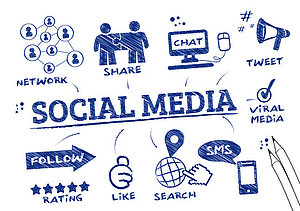Law in Social Networks

The social networks have a great influence on most internet users' online behaviour. Selfies, foodporn, shitstorm and other online trends have a determining and opinion building effect. The high number of social networks (Facebook, Twitter, Instagram, Google+, Pinterest, Yelp etc.) is complemented by a similarly high number of media platforms like Youtube and Flickr, which allow – in line with the publication of works protected by copyright – also the free exchange of views among the users.
Like generally in the internet the user does not move in a law-free space, when acting in a social network. The applicable law covers this way also the social networks. Kinds of conducts which are penalised in the “offline world” are similarly penalised on the internet. The social networks promote the feeling of unboundednes and contribute in a determining manner, via the simple dissemination of information (let’s think on the social share functions on websites), to that infringements would be made accessible quickly for a wide public.
These kinds of conduct may involve civil law and penal law consequences. In addition to a claim directed to injunction the damaged party may be entitled under certain circumstances to indemnity.
The person concerned can't just in the event of infringements in social networks secure the means of evidence via quick action (screen print, file download etc.), but he or she may often be also able to prevent the broad dissemination of contents. Thus the person concerned should not wait too long before entering the way to the attorney at law.




